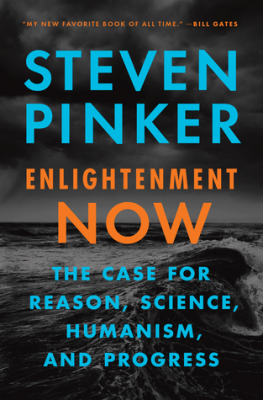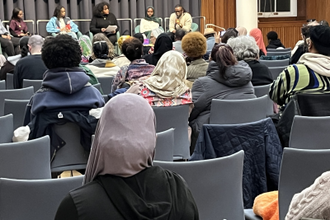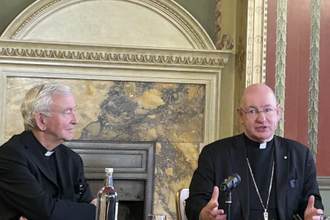Book: Enlightenment Now

Enlightenment Now: the case for reason, science, humanism and progress, by Steven Pinker, Allen Lane, £25
Bill Gates has anointed Enlightenment Now as his favourite book of all time. No wonder: the author, Steven Pinker, provides proof that the logic underlying the Gates Foundation's work is correct. Despite the daily diet of misery in the news, the hard evidence shows that the world is a massively better place, and there has never been a better time to be alive.
This lengthy but highly readable tome is recommended for ICN readers discouraged by the global rise of populism, intolerance, conflict and ethnic cleansing. The author succeeds in showing the extraordinary strides made in tackling absolute poverty, short life expectancy, maternal and child mortality, ignorance, disease and the risk of dying in accidents. He also makes a convincing case for the institutions currently under attack by politicians who harness voters' disenchantment and frustration with so-called global elites.
Pinker is alarmed by the anti-enlightenment forces currently in the ascendant: loyalty to tribe, deference to authority, magical thinking, and the blaming of misfortune on evil doers or "the other." He worries that we have become so used to human progress that we no longer value the enormous benefits due to liberal democracy, predictable laws, legitimate institutions, and organisations of international cooperation.
Thanks to the Enlightenment, he argues, average global life expectancy has increased from 29 in the mid-18th century to 71 now. In the relative affluent USA and Europe, the average life span was 60 in 1950. Even in Ethiopia, it is now 61. Thanks to the work of a mere 100 scientists, five billion lives have been saved with inventions that eradicated diseases like small pox, reduced the impact of polio and malaria, increased agricultural yields and improved traffic and airplane safety. In 1970, 35% of the world was undernourished; that figure has fallen to 13% now.
In confronting "romantic declinism" ("Make America Great Again," "Britain was better off before it joined Europe," "if only things could be like they were in the 1950s") Pinker points out that there is little media interest in a headline that reads, "The number of people living in extreme poverty fell by 137,000 yesterday, and has done every day for the last 25 years." He refutes the supposed negative impact of globalisation, pointing out that devices that have totally transformed the lives of women (washing machines, vacuum cleaners, refrigerators) are now affordable to most people in the developed world, whereas they were once luxuries.
Pinker's aim is also to make the case for humanism, as opposed to religious faith, which he sees as standing in the way of progress. Yet, after sundry chapters on the formation of the universe (or multiverses), he cannot produce evidence that matter, time and space suddenly appeared from nothing, as opposed to being created by the first mover that readers of ICN call God. Someone should remind Pinker that when Neil Armstrong (a brilliant scientist and engineer, as well as being the first man on the moon) returned from space, he said he was a deist - in other words, he thought that something much greater than us, and not a random set of coincidences, had created everything out there. No matter how you dress up your scientific "facts," it all boils down to one set of opinions or beliefs as opposed to another set of opinions or beliefs.
Another quibble: Pinker assumes all problems can be solved by applying Enlightenment tools (science, education, liberal democracy, accountable institutions). At the same time, he admits that huge challenges remain in Sub-Saharan Africa and several Muslim-majority countries. Yet, he avoids confronting the power of traditions and prevailing culture that breed suspicion of science or vaccinations or literacy or education for girls or pre-natal care, or that validate beating your wife daily or selling your young daughter into sex slavery. It is as if he is a visitor from another planet who doesn't quite grasp the entirely human, irrational impediments there are to spreading the benefits of knowledge and progress. He avoids the very real danger facing someone in a conservative, traditional society who questions interpretations of holy texts or the power of clan leaders and witch doctors.
Pinker also understates the number of civilians (as opposed to soldiers or militia members) still being killed in conflict around the globe. He blames "civil wars" without grasping that governments such as those in Myanmar, Syria, Sudan, South Sudan and the Democratic Republic of Congo, are killing their own citizens. He also states that only 5,000 have been killed by the Islamist Boko Haram terrorists in Nigeria, when even the Nigerian government admits the figure is 20,000. When your reviewer visited the Middle Belt region two years ago, Christians there provided convincing proof that 20,000 had been killed by Boko Haram and their associated Islamist herders in their region alone.
However, this is the book for you if you wish to cheer yourself up, or win arguments against your racist cousin Kev, or your Trump- or Brexit-supporting Uncle Nigel. Not that Uncle Nigel is likely to believe Pinker's statistics; more fake news, he'll say.
For more information see: www.penguin.co.uk/books/267227/enlightenment-now/


















